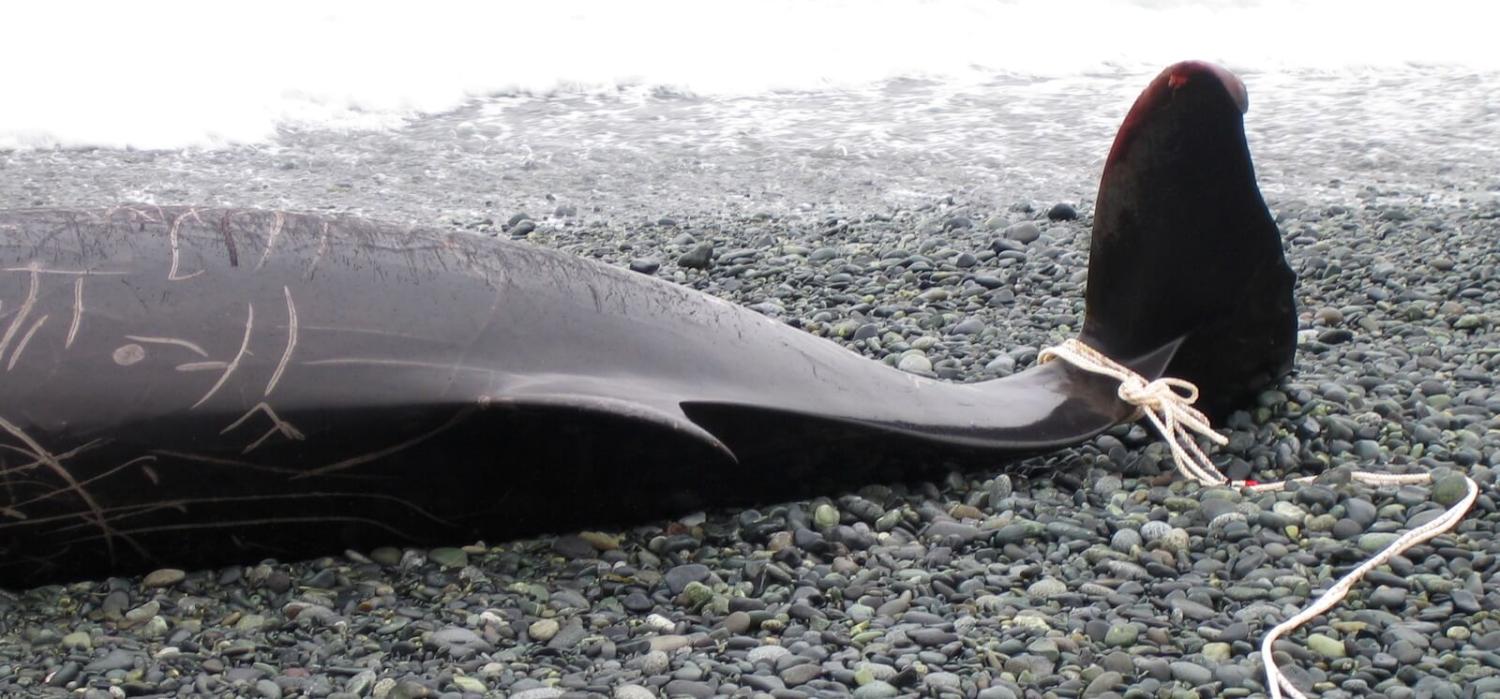It might seem odd to see a glimmer of hope for conservation of the world’s whales, at the very time Japan has announced it will unilaterally withdraw from global whaling regulations and kick-start commercial hunts in its territorial waters.
Australia has branded the move “extremely disappointing”. But maybe, just maybe, this whole sorry episode, combined with long-standing economic and diplomatic pressures, could actually serve as a face-saving way for Japan to eventually stop whaling altogether, even if the cost is (again) to the country’s wider credibility in promoting respect for rules in international diplomacy.
Japan has already suffered for its stubborn insistence on whaling.
More on that hope for the whales – and the diplomatic cost to Japan – in a moment.
For now, Japan has declared that after this year it will no longer kill whales in waters surrounding Antarctica, home to the most endangered species. This is a momentous end to what was a senseless and self-defeating practice, and the insistance on hunting in international waters was a big part of the reason Japan attracted such reproach, compared to other whaling nations, Norway and Iceland. As Sea Shepherd founder Paul Watson declared, the announcement by Tokyo really does mean “the whale wars in the Southern Ocean are over. The whales have won”. That alone is worth celebrating.
At least for now. Despite Japan’s stated intention not to harvest whales in Antarctica, there is a debate in official circles in Australia about whether Japan’s withdrawal from the International Whaling Commission would actually serve as an impediment to stop it from dispatching the hunters south again, should it so choose.
Watson is also right that reports of Japan “resuming” commercial whaling are not strictly correct – Japan never really stopped. Under the guise of discredited science, the Japanese government stubbornly and belligerently ignored the effort to make the Southern Ocean an international sanctuary, spending huge amounts of money to dispatch ships thousands of kilometres to slaughter whales and then sell the catch at market. Sea Shepherd protesters regularly sought to obstruct the hunt. But in the end, they couldn’t sustain the campaign.
So right at the moment, Japanese harpoon ships at work skirting icebergs and dodging penguins off the coast of Antarctica while killing whales, with no other witnesses. Perhaps an understanding that with this latest announcement Japan is simply throwing off the pretence of scientific research goes some way to explaining the otherwise surprising lack of public outrage about this “barbaric practice” of whale hunting, a point which former British foreign secretary Boris Johnson lamented.

So what then is the hope? One aspect is that Japan’s whaling in its near seas will be limited. There is no great consumer clamour for whale in Japan. For a time, imported whale meat was even sold as dog treats in an effort to spur a market, and the institute that supposedly governed scientific research into whales hosted a website for whale recipes. Several companies previously involved in whaling have already said they’ve no plans to resume the hunt following the announcement last month, while one supermarket chain said: “We don't expect there to be demand at all our outlets. We therefore have no plans to expand sales of whale meat or hold special sales.” Consumer demand is so low, a stockpile of around 3000 tones of frozen whale meat is in storage, according to official reports – enough for a year at the present rate of consumption.
Other outlets have refused to sell whale meat, wary of a backlash from conservation campaigns.
There are practical costs, too. Japan had said last year it would replace the giant whale factory ship, Nisshan Maru. But the price tag for another version of this 8000 tonne, 130-metre floating freezer and abattoir, is prohibitive – one local Diet member suggesting the cost could top US $400 million, while this report appears to suggest most whaling authorised in Japanese waters will be by coastal vessels, rather than the “mother ship” model required in the vast emptiness of the Southern Ocean. And the government subsidies that propped up the past hunt may no longer be as generous.
With dwindling demand, hopefully the economics simply don’t stack up, even if, as the Australian Marine Conservation Society’s Darren Kindleysides puts it, an end to Southern Ocean whaling “would be a bittersweet victory if it comes with unchecked commercial whaling by Japan in their own waters”.
But if the announcement of “resumed” commercial whaling closer to home is just a cover for getting out of a costly hunt in the Southern Ocean, Japan has compounded the damage to its reputation. Japan has already suffered for its stubborn insistence on whaling. After Australia’s successful challenge to the Japanese hunt in the International Court of Justice in 2014, Japan responded petulantly, withdrawing from the jurisdiction of the court and resuming the hunt by writing itself a new set of guidelines. It made for a poor example for a country that otherwise preaches respect for the rules-based order.
Now the precedent set is worse. Japan, frustrated by efforts to lift a moratorium on whaling at the IWC, has quit the international body. As the Japan Times noted in an editorial, it is “unprecedented in Japan’s postwar history that the nation has pulled out from a venue of international talks on the grounds of a stalemate in the discussion.”
You’d have to think Beijing is closely watching.


